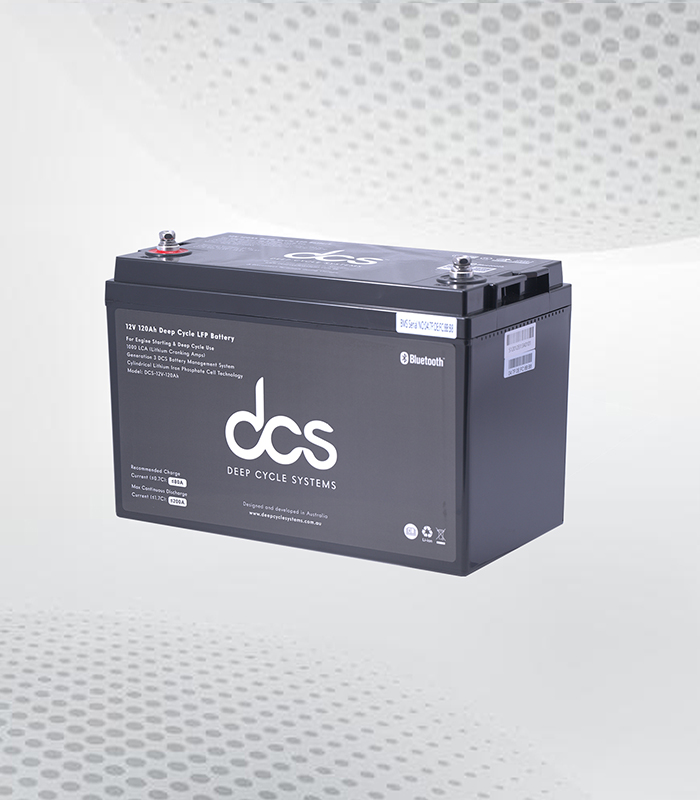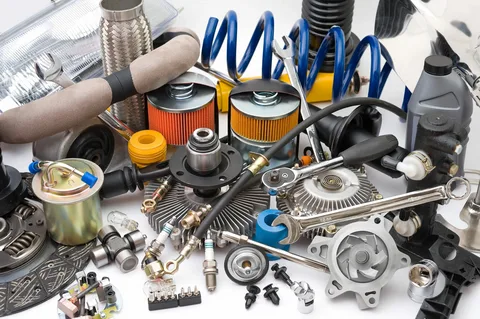Regarding energy storage, the type of battery you use can make a significant difference in efficiency and reliability. One battery has been making waves in the energy storage industry is the Lifepo4 120ah Battery. This advanced battery technology is revolutionising how we store and use energy, providing a more efficient and sustainable solution for various applications.
Understanding the Basics of 120Ah Batteries
Delving into the fundamentals of 120Ah batteries illuminates their significance in energy storage. The unit ‘Ah’ signifies ampere-hour, a key indicator of a battery’s capacity to store electrical charge. Essentially, this metric allows us to quantify the amount of energy a battery can hold and dispense over a period, measured in amperes over an hour. In the context of 120Ah batteries, this rating conveys a substantial energy reserve, enabling these batteries to support applications demanding sustained power delivery.
Moreover, understanding ampere-hours aids in comparing batteries’ energy storage capabilities, providing a standardised measure to assess their potential utility across various devices and systems. Whether for powering electric vehicles, sustaining off-grid power systems, or storing renewable energy, the ampere-hour rating is a fundamental aspect that influences a battery’s suitability for specific applications.
The Lifepo4 120ah Battery Explained
The Lifepo4 120ah Battery represents a leap in the evolution of lithium-ion technology, distinguished by its utilisation of lithium iron phosphate as the cathode material. This chemistry selection is pivotal, offering distinct advantages when contrasted with conventional battery types. Adopting lithium iron phosphate endows these batteries with exemplary thermal stability and a remarkable safety profile, aspects critically acclaimed in scenarios where operational risks must be minimised.
Central to its appeal is the battery’s resilience and longevity. Unlike traditional counterparts, the Lifepo4 120-ah variant is engineered for endurance, embodying a design that mitigates the degradation associated with repeated charge and discharge cycles. This resilience translates into a tangible return on investment over time, as the frequency of replacement diminishes.
In addition to longevity, the LiFePO4 chemistry is synonymous with efficiency. It provides a higher energy density, a feature allowing a more compact and lightweight form factor without compromising capacity. This aspect is particularly beneficial in applications where space and weight considerations are paramount, such as mobile and off-grid applications.
LiFePO4 120-ah Battery encapsulates a blend of advanced features that cater to a broad spectrum of energy storage needs. Its introduction into the market represents a notable shift towards more sustainable, efficient, and safe energy storage solutions, heralding a new era of technological innovation in battery design.
Advantages of Using 120 Ah Battery Batteries
The merits of deploying 120 Ah Battery batteries extend across various dimensions, setting them apart from alternative battery technologies. These batteries distinguish themselves through their remarkable longevity, capable of enduring up to 10 times the lifespan of their lead-acid counterparts. This extended service life is a testament to their durability and translates into significant cost savings over time, reducing the need for frequent replacements.
Operational versatility is another key advantage, with LiFePO4 batteries demonstrating exceptional performance across a broad temperature range. This makes them ideally suited to a wide array of environments, from the heat of desert landscapes to the cold of polar regions. Their robustness in various temperature conditions without significant degradation in performance or reliability underpins their suitability for diverse applications.
Crucially, Lifepo4 120-ah batteries offer an environmentally friendlier option, featuring less harmful materials and more easily recyclable at the end of their lifecycle. This aspect aligns with the growing global emphasis on sustainable and eco-conscious energy solutions, making them an attractive choice for consumers and industries looking to minimise their environmental impact.
Common Applications of 120Ah Batteries
Lifepo4 120-ah batteries are used in an eclectic mix of applications, evidencing their versatility and robust performance across different sectors.
·These batteries are particularly prized in renewable energy systems, such as solar power storage, where their capacity to store substantial amounts of energy ensures a steady supply even when sunlight is scarce.
·In marine settings and recreational vehicles (RVs), the compact and lightweight nature of these batteries, coupled with their impressive energy density, makes them an indispensable source of power for long voyages or journeys. They facilitate the operation of onboard electronics and appliances without the constant need for recharging.
·Electric vehicles (EVs) benefit significantly from adopting Lifepo4 120-ah batteries, thanks to their high efficiency and fast charging capabilities. This ensures not only extended range but also reduced downtime, propelling the shift towards more sustainable modes of transportation.
·Off-grid power solutions, including remote cabins and telecommunications towers, rely on these batteries for their exceptional reliability and longevity. They ensure continuous operation in locations where traditional power sources are unfeasible.
·Additionally, these batteries play a critical role in emergency backup systems, providing a fail-safe against power outages and ensuring critical systems remain operational. The inherent safety features and thermal stability of LiFePO4 batteries, combined with their high discharge rate, make them ideally suited to high-stakes applications.
Their broad operational temperature range further enhances their applicability in diverse environments, from the chilling cold of arctic regions to the blistering heat of desert landscapes, offering reliable power solutions worldwide.
Maintaining Your LiFePO4 120-ah Battery
Ensuring the durability and optimal functioning of your LiFePO4 120-ah Battery involves adhering to a set of straightforward maintenance practices. The regulation of charge cycles is key to preserving the battery’s integrity; it’s crucial to avoid situations where the battery is fully depleted or overcharged, as these conditions can significantly impair its lifespan.
Temperature management also plays a pivotal role in battery upkeep. Storing the battery in either too hot or too cold conditions can adversely affect its performance and longevity. Keeping the battery in a cool, dry place, away from direct sunlight or any heat sources, is advisable to prevent thermal degradation or capacity loss over time.
Regular inspections for signs of wear or damage are essential. Any abnormalities, such as bulging, leakage, or notable changes in performance, should prompt immediate attention to prevent further issues.
Besides physical maintenance, it’s important to utilise a compatible charger specified by the manufacturer and adhere to their recommended charging practices. This includes not leaving the battery to charge unattended for extended periods and disconnecting it once fully charged. Such practices contribute to the battery’s longevity and optimise its performance across its service life.
Comparing Lifepo4 120-ah to Other Battery Technologies
When scrutinising the energy storage landscape, the LiFePO4 120-ah Battery emerges as a frontrunner, especially when juxtaposed against traditional battery contenders such as lead-acid and other lithium-ion variants.
Lead-acid batteries, long the stalwarts of energy storage, are gradually overshadowed due to their bulkier dimensions, heightened maintenance requirements, and shorter service lifespan. While they may present an initially lower investment, their recurrent need for replacement and the cost associated with disposal render them less economically viable in the long run.
On the other hand, generic lithium-ion batteries, although superior to lead-acid in energy density and cycle life, are often saddled with safety concerns. Overheating and potential fire risks have been notable drawbacks, prompting a search for a more secure alternative.
Comparatively, the energy efficiency of the LiFePO4 120-ah Battery surpasses that of lead-acid and matches or even exceeds other lithium-ion batteries, without compromising safety or longevity. This makes it attractive for various applications, from renewable energy storage and electric vehicles to portable and off-grid systems.
The transition towards LiFePO4 technology signals a shift in preference for batteries that offer superior performance and environmental friendliness and prioritise safety and cost-effectiveness. As such, the LiFePO4 120-ah Battery stands as a testament to the advancements in battery technology, setting a new benchmark for competitors across the spectrum of energy storage solutions.
The Future of Energy Storage with Lifepo4 120-ah Batteries
The trajectory of energy storage technologies is unmistakably veering towards more sustainable and efficient solutions, a trend prominently underscored by adopting Lifepo4 120-ah batteries.
·These batteries are at the forefront of supporting the integration of renewable energy sources, such as solar and wind, into the mainstream energy mix, a critical step in the global shift towards greener alternatives. The inherent characteristics of LiFePO4 batteries, including their impressive cycle life and stability, make them suited to the demands of modern energy systems requiring reliable, long-term storage solutions.
·In the evolving electric mobility landscape, Lifepo4 120-ah batteries are set to play a pivotal role. The push for electric vehicles (EVs) to reduce carbon emissions and combat climate change is gaining momentum.
·Here, the fast charging, high energy density, and safety profile of LiFePO4 batteries align perfectly with the requirements for EV battery technology, promising to enhance vehicle performance while adhering to environmental sustainability goals.
·Furthermore, advancements in material science and manufacturing techniques promise to further improve the efficiency and reduce the cost of Lifepo4 120-ah batteries. Deep cycle batteries are integral to systems where steady power output over extended periods is paramount. These batteries differentiate themselves by their design, which allows for a significant portion of their capacity to be used without detrimental effects on their lifespan.
Innovations such as the development of novel cathode materials or the optimization of battery architecture could lead to even higher energy densities and faster charging times, broadening their applicability.
FAQs
How long can a Lifepo4 120ah Battery be expected to last under regular usage conditions?
Under typical usage conditions, Lifepo4 120-ah batteries boast an impressive lifespan, enduring between 2000 and 5000 charging cycles. This duration significantly outstrips that of conventional lead-acid batteries, making them a durable choice for various applications.
Is incorporating a Lifepo4 120ah Battery into my existing off-grid energy setup feasible?
Lifepo4 120-ah batteries are excellently suited for off-grid energy systems. Their robust energy density and reliable performance in remote locations make them a preferable option for ensuring a consistent power supply away from conventional grids.
What is the recommended method for disposing of a Lifepo4 120ah Battery at the end of its service life?
Lifepo4 120ah batteries are recognised for their non-toxic composition, which allows for environmentally friendly recycling. At the end of their usable life, they should be taken to specialist recycling facilities to be processed correctly. Adhering to proper disposal procedures is crucial to minimise any potential impact on the environment.
Conclusion
In summarising the discourse on the transformative potential of the LiFePO4 120-ah Battery within modern energy storage, its standout attributes align seamlessly with the evolving prerequisites of many applications. This battery technology does not merely offer an alternative to conventional power storage solutions; it sets a new benchmark in efficiency, durability, and environmental stewardship. As we grapple with the imperatives of energy reliability, the mitigation of environmental impact, and the pursuit of technological advancement, the LiFePO4 120-ah Battery emerges as a pivotal player.











